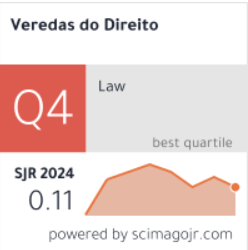CLIMATE CHANGES: THE CHALLENGES OF INTERNATIONAL ENVIRONMENTAL LAW CONTROL AND THE KYOTO PROTOCOL, IN PARTICULAR
DOI:
https://doi.org/10.18623/rvd.v13i26.650Keywords:
Environmental law, Climate changes, Kyoto Protocol, Application control.Abstract
Traditional means for response to violations of international obligations do not fit to the needs in the environmental field. In the eyes of the common interest pursued by all Contracting Parties, it is more appropriate to financially or technically assist the State in difficulties than to ask for State responsibility. In most cases, cooperation and assistance will fruitfully replace sanction. It is more important to promote compliance than to punish non-compliance. Using a classical empirical method, the objective of the contribution is to highlight the importance of this issue and to demonstrate how the Kyoto Protocol on Climate Change is evidence of this phenomenon. The article concludes that the Protocol has given rise to the most comprehensive non-compliance procedure to date. The monitoring and control procedure is very coherent and intrusive. Divided into two branches - a facilitative branch and an enforcement one -, the Compliance Committee is quasi-judicial. Potential sanctions are essentially intended to be dissuasive. However, this procedure could be replaced within the future international climate regime by a softer one, the so-called MRV system for ˜Monitoring, Reporting, Verification™ that applies to pledges made in the framework of the Climate Change Convention since the 2009 Copenhagen Accord.
Downloads
Published
How to Cite
Issue
Section
License
I (we) submit this article which is original and unpublished, of my (our) own authorship, to the evaluation of the Veredas do Direito Journal, and agree that the related copyrights will become exclusive property of the Journal, being prohibited any partial or total copy in any other part or other printed or online communication vehicle dissociated from the Veredas do Direito Journal, without the necessary and prior authorization that should be requested in writing to Editor in Chief. I (we) also declare that there is no conflict of interest between the articles theme, the author (s) and enterprises, institutions or individuals.
I (we) recognize that the Veredas do Direito Journal is licensed under a CREATIVE COMMONS LICENSE.
Licença Creative Commons Attribution 3.0








